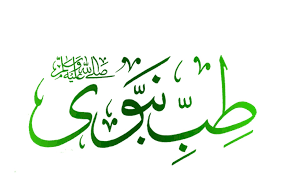
Tibb-e-Nabawi, also known as Prophetic Medicine, is an ancient system of medicine that was practiced by the Prophet Muhammad (peace be upon him) and his companions. It is based on the teachings of the Quran and Hadith, and emphasizes the use of natural remedies and lifestyle modifications to maintain good health and treat various illnesses.
History of Prophetic Medicine
The origins of Tibb-e-Nabawi can be traced back to the time of the Prophet Muhammad (pbuh) in the 7th century. The Prophet (pbuh) was known to be an expert in healing and is said to have used various natural remedies to treat himself and his companions.
After the death of the Prophet (pbuh), his companions continued to practice and teach the principles of Tibb-e-Nabawi. One of the most famous companions of the Prophet (pbuh), Abdullah ibn Abbas, compiled a book on the subject called “At-Tibb al-Nabawi” which contains the medical teachings of the Prophet (pbuh) and his companions.
Over the centuries, Tibb-e-Nabawi was further developed and refined by various Islamic scholars and physicians. One of the most notable scholars in this regard was Ibn Sina (also known as Avicenna), who wrote the famous medical textbook “The Canon of Medicine” which incorporated the principles of Tibb-e-Nabawi.
Principles of Tibb-e-Nabawi
Tibb-e-Nabawi is based on the concept of maintaining a balance between the physical, mental, and spiritual aspects of a person’s life. The principles of Tibb-e-Nabawi are rooted in the teachings of the Quran and Hadith, and emphasize the use of natural remedies and lifestyle modifications to maintain good health and treat various illnesses.
Some of the key principles of Tibb-e-Nabawi include:
- Healthy diet: The Prophet (pbuh) emphasized the importance of a healthy and balanced diet, and advised his companions to eat moderate amounts of food and to avoid overeating. The diet recommended in Tibb-e-Nabawi includes a variety of whole foods, including fruits, vegetables, grains, and lean proteins.
- Physical activity: The Prophet (pbuh) encouraged his companions to engage in physical activity and to avoid a sedentary lifestyle. Exercise is considered an important part of Tibb-e-Nabawi, and is believed to promote physical and mental health.
- Herbal remedies: Tibb-e-Nabawi emphasizes the use of natural remedies to treat various illnesses. The use of herbs and spices such as ginger, garlic, honey, and black seed oil are commonly used in Tibb-e-Nabawi to treat a variety of ailments.
- Spiritual well-being: Tibb-e-Nabawi recognizes the importance of spiritual well-being in maintaining good health. The practice of regular prayer, charity, and other acts of worship are believed to promote spiritual well-being and improve overall health.





Application of Tibb-e-Nabawi Today
Today, Tibb-e-Nabawi is still widely practiced in many parts of the Muslim world. It is often used as a complementary or alternative form of medicine alongside modern Western medicine. Tibb-e-Nabawi practitioners often use a combination of herbal remedies, dietary changes, and lifestyle modifications to treat various health conditions.
In recent years, there has been a growing interest in Tibb-e-Nabawi in the Western world. Many people are seeking out natural and alternative forms of medicine, and Tibb-e-Nabawi is seen as a viable option for those who wish to maintain good health and treat various illnesses.

Prophetic Medicine is a true gem that has transformed my understanding of health and well-being. Drawing from the ancient wisdom of Prophet Muhammad (peace be upon him), this comprehensive system of healing offers a holistic approach that encompasses both physical and spiritual aspects of wellness.